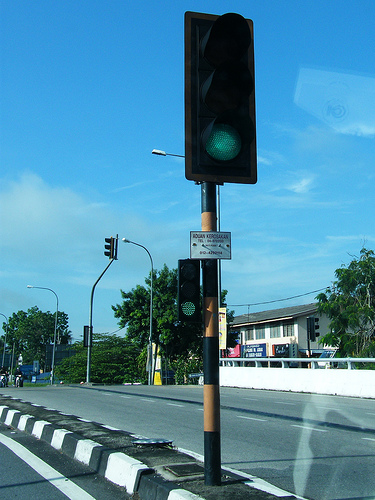
A lot of light and noise has been generated by a new book–Flash Boys–that raises concerns about high-frequency trading (HFT) and enables journalists to use plenty of alarming phrases such as algorithmic terrorism, dark pools, and the little people getting fleeced. Michael Lewis, a man who, had he been born in a different era might well have been commissioned to ghostwrite the Book of Genesis, has succeeded in grabbing the media’s with lurid suggestions that the market is rigged and that players like David Einhorn are really just dumb tourists in a casino.
So what is HFT and should we be cashing in our chips? From what I can understand, buy orders, even if placed simultaneously, do not arrive at exchanges at the same time. The length of time it takes depends on different factors, such as your broker, the size of your trade, and probably the weather. The HFTraders specialise in obtaining your trade details after they have been placed but before they have been executed. A Buy order big enough that, when it gets executed, will increase the share price, enables the HFTrader to nip in before that execution with a crafty Buy order of his own. After the original big, lumbering trade has finally been executed and the share price has increased, the wily HFTrader can exit his own position at a profit.
So does this fleece the little guy? I can’t see how it does. The paltry little buy orders that get submitted once or twice a month from the FI brokerage account would be highly unlikely to arouse the attention of any big beasts in the HFT business; we are but gnats strolling across the backs of hippopotami in that respect. In fact, the only impact that seems certain to me, is that there is increased liquidity and lower trading costs (spreads) as a result of all this frenetic high-speed activity. Additionally, if there are more people competing to anticipate the next minute’s prices, then that should just increase the space for those of us trying to think a decade or two ahead. If, however, you are trying to operate as a day-trader… well perhaps you would have better career prospects as a woodcutter or a shepherd.
Even if it is harmless, should it be tolerated? Probably not, at least from what I understand of it, because it does sound a little bit like computerised front-running and a submitted trade order could hardly be considered knowledge that is in the public domain and therefore available for all market players to act on. Perhaps, however, it is just the case that it is too difficult to prevent and so will become something we will have to live with. For my part, it isn’t going to keep me awake at night; I don’t buy shares against the clock. These HFTraders, it would seem to me, mainly compete against each other.
One disappointing result of the growth in computerised HFTrading, however, is that it has eliminated the need for slick-haired, stripy-shirted city boys bellowing down phone lines while gesturing wildly at each other. Now all we have are silent offices full of rather dull quants sitting in front of chilly server rooms with huge mainframe computers; a scene that is never going to inspire the News picture editors at the BBC.
Please let me know if I am overlooking anything important on this subject. Do note, however, that any comments not submitted within < 0.1 second will be disregarded.

1 thought on “The Fast and the Furious”